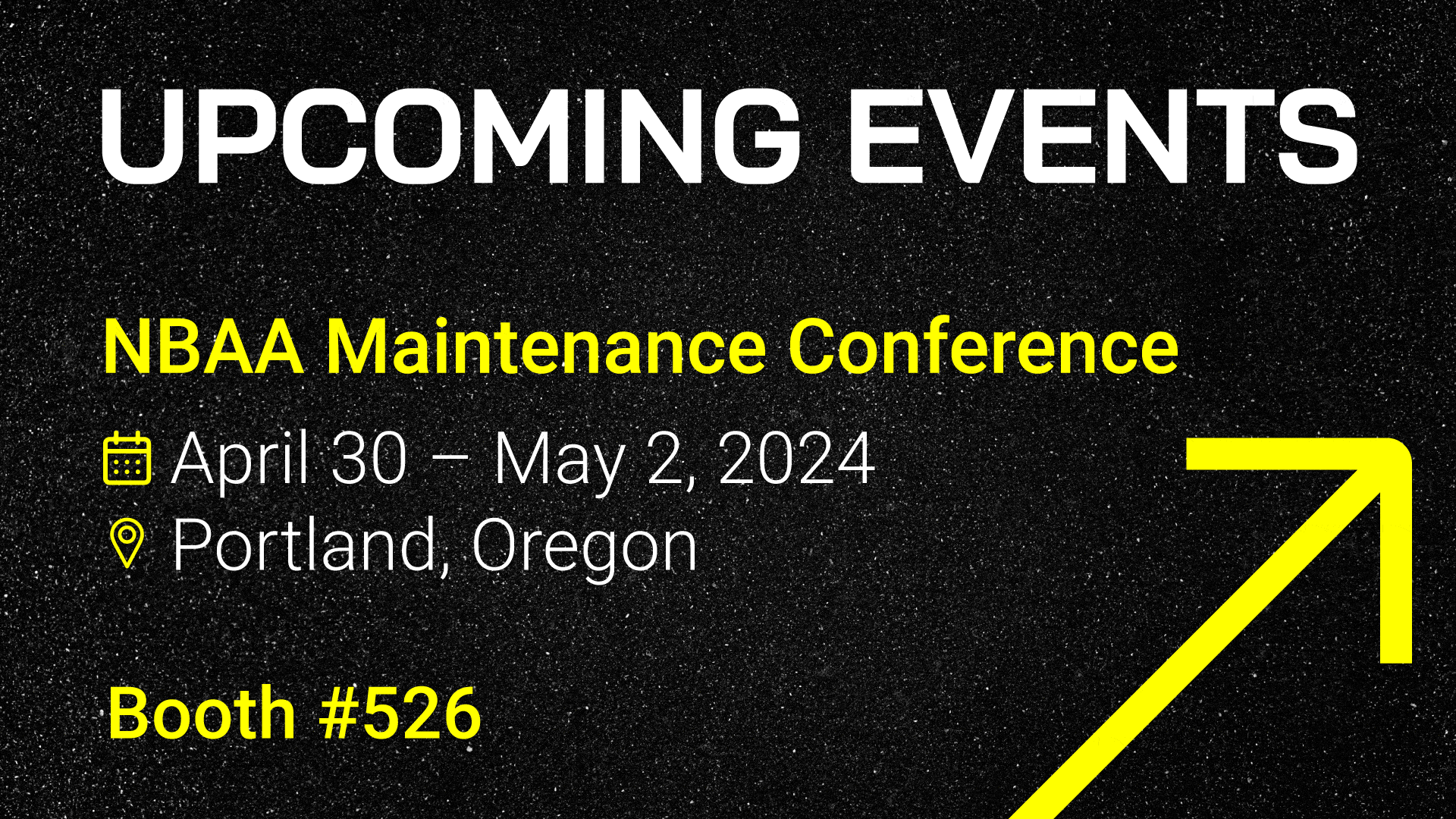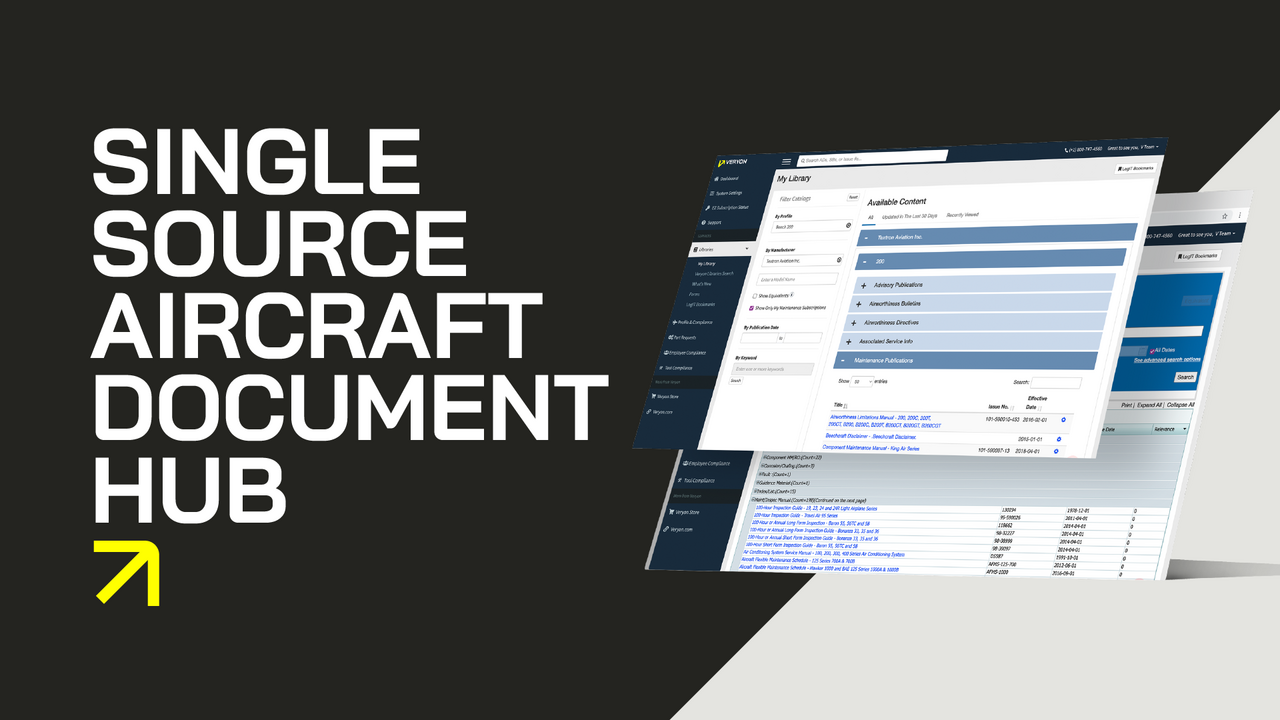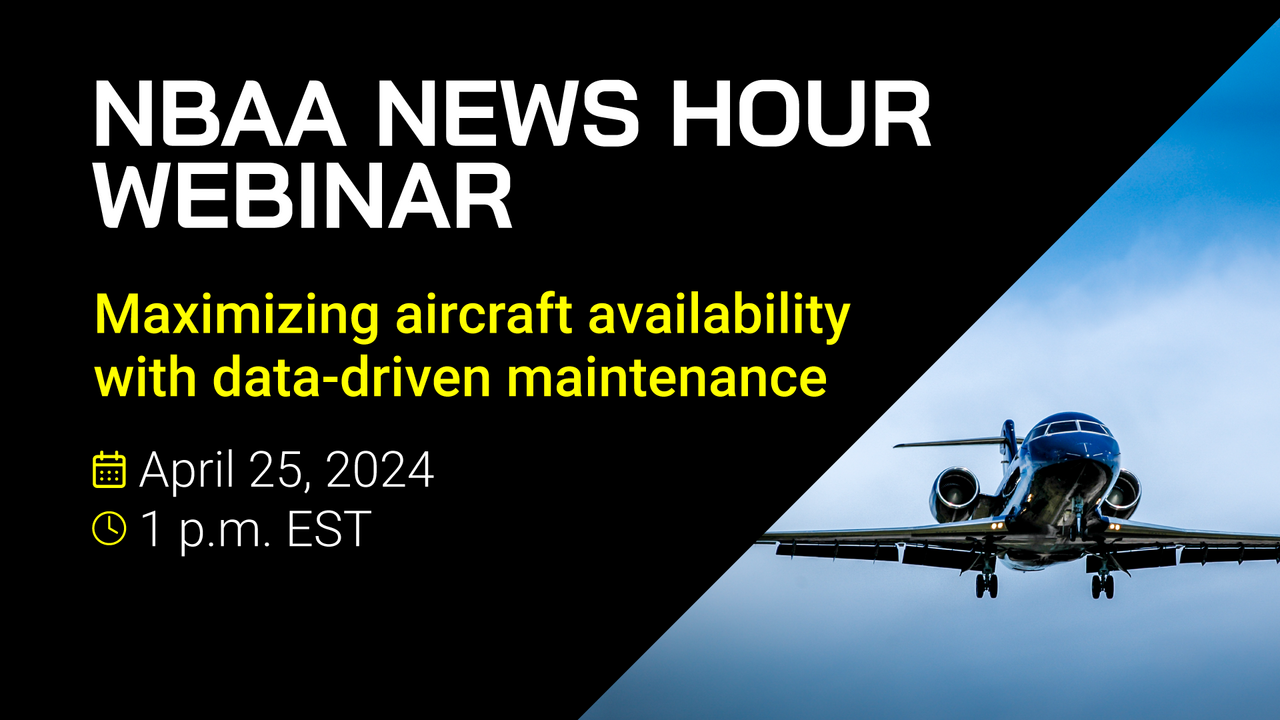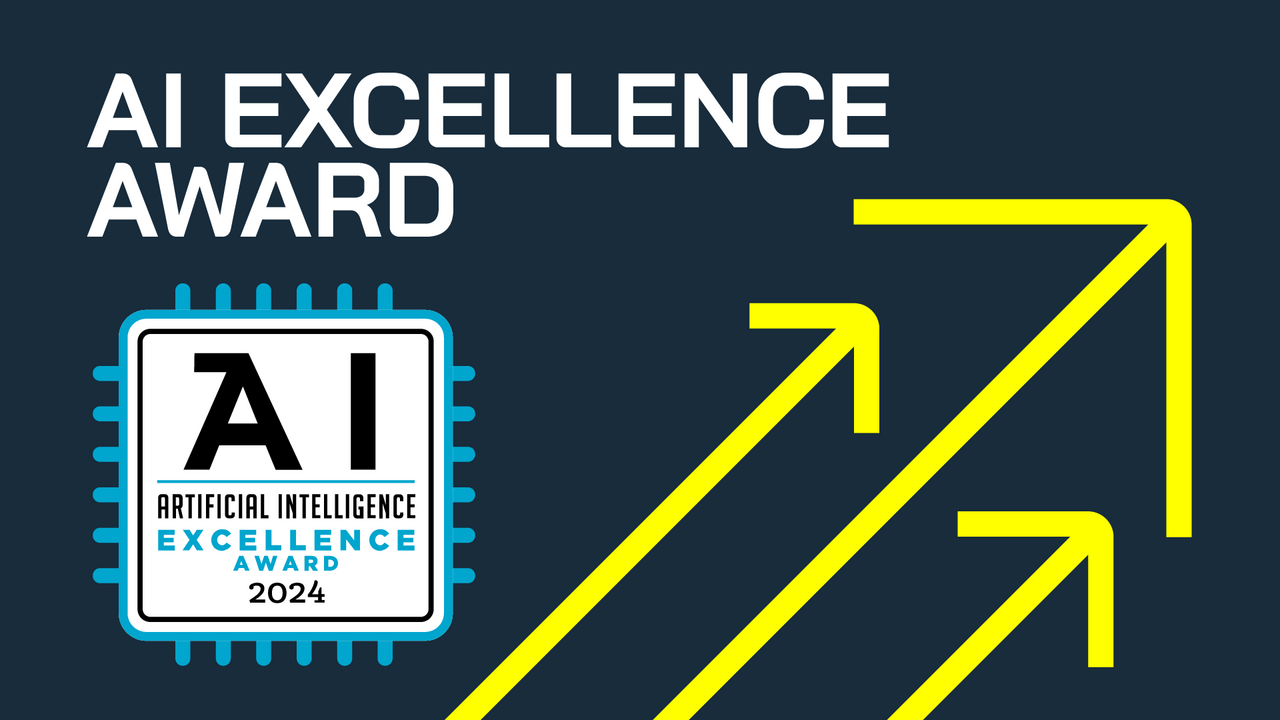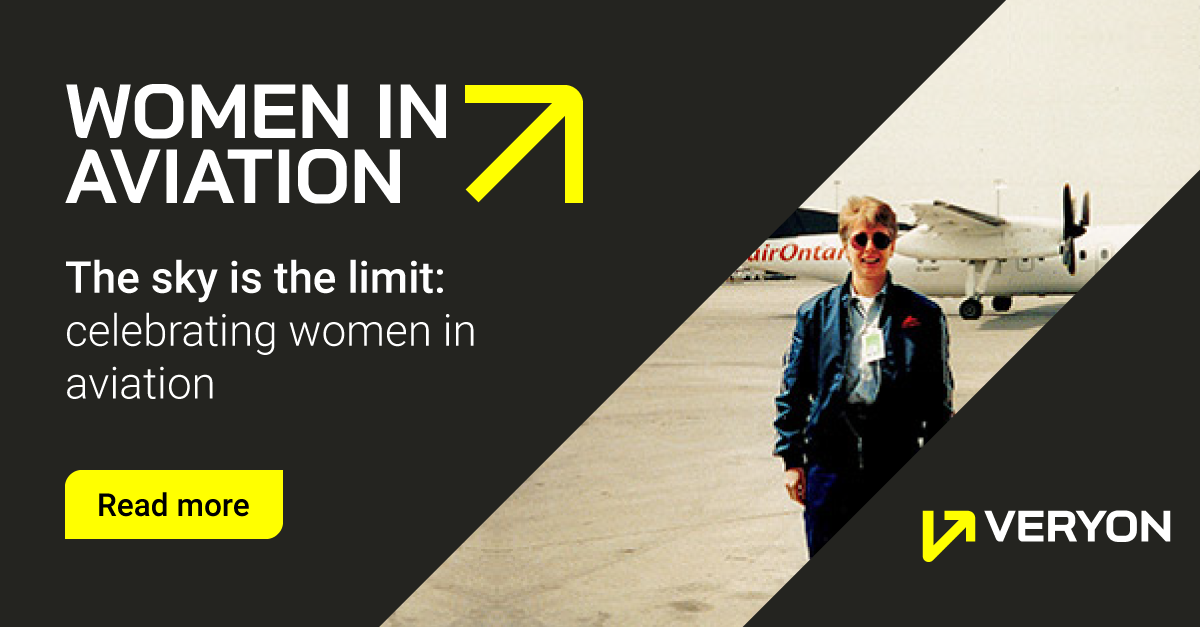
The 2023 Super Bowl was historic in nature for plenty of sports statistics, but also because it was the first time ever that the traditional pregame flyover featured an all-female team of pilots.
According to a tweet from the National Football League (NFL), the notable event celebrated 50 years of women aviators in the U.S. Navy.
Seven female aviators flew fighter jets in a diamond formation over the stadium before kickoff. With March 6 - 12 deemed Women of Aviation Worldwide Week, the event was timely. Here at Veryon, we are especially proud of two of our female aviation team members, Dena Porter and Stephanie Hart.
Stephanie is Veryon's Chief Customer Officer and has been with the company for over 10 years. She says her job is to “live and breathe delighted, engaged customers who love our products and services.”
Dena, who semi-retired in 2023, was the Veryon Director of Database Development for OEMs. She then began working part-time doing database maintenance. She’s been with the company for over 23 years and in aviation for 35 years.

In different eras of well accomplished careers, they share the same aviation pet peeve of experiencing a delay while flying commercial. The frustration of sitting and waiting for the part to be replaced or for the crew to arrive is daunting, since they’d both rather be in the trenches helping to fix the problem. Below, the ladies share why their passion lies in aviation.
Q: What initially attracted you to the industry?
Dena: When people choose a career in aviation, generally speaking, it’s mostly men and they usually know at a very young age they want to work on aircraft. I didn’t really do that. I went to university, spent a short time in the Canadian military, went back to school and did electronic training after which I started a job with Sony. I kind of fell into aviation as my next job, so i was late to the game.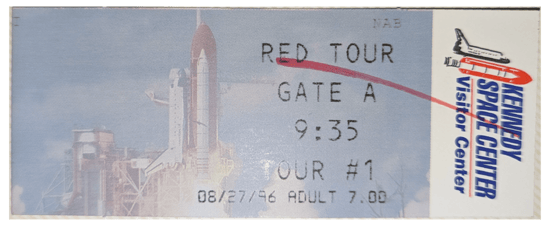
Stephanie: During my childhood, we went on a family vacation to California where I saw all of the NASA stuff and immediately had a fascination with space. I even went to space camp in 12th grade in Huntsville, Alabama. Living in Canada at the time, it was a big deal! I would love to go back actually as an adult one day — it was such a great experience. We got to do simulated missions and underwater training. For a while, I wanted to be an astronaut. For now, I will settle for getting Veryon’s first space customer, which is a goal of mine while I’m here. I received an aerospace engineering degree at the University of Toronto. I worked for a flight simulator company and worked on the code behind the scenes and ended up in project management and loved it. I’ve been very lucky over the years at Veryon with great opportunities and it’s the reason I’m still here.
Q: Would you encourage women to get involved in the aviation industry?
Dena: When I started, it wasn’t as accepted for women to be in the industry as it is now, but having said that, I never came up against anything out of the ordinary. I was always offered great opportunities and I would certainly encourage women to go into aviation — not just in engineering, but also as pilots, administrators, traffic control ... If we can think it, we can do it. There are so many opportunities for different career paths.
Stephanie: Absolutely! I love it and would encourage anyone with an interest to pursue it.
Q: What is your favorite thing about working in aviation?
Dena: Years ago before I joined Veryon, I was a field service engineer and that job took me all over the world. One of my favorite things has been living in so many diverse places. That was an aspect of my life I never thought I’d be doing, but aviation gave that to me.
Stephanie: Getting to know our customers is my favorite thing. We have such interesting customers and a wide variety of aircraft that we get to work with -- from F35 fighter jets and air ambulance helicopters to jets that can fly to remote locations for emergencies and major commercial airlines. Learning about all of their different operations and the scale at which they do things is fascinating.
Q: Do you have any advice for women wanting to get into aviation?
Dena: I think every kid in school should explore their aptitudes to see if there is an interest or a natural leaning toward the industry. Don’t be afraid to get your hands dirty and realize that nowadays there are no barriers to getting into aviation. The sky is the limit.
Stephanie: You’re going to have allies, both male and female. Seek them out and stay close with those who support you and leave the naysayers in the dust. Within Veryon, I’ve been extremely lucky to have great leaders, colleagues and mentors, and many of them have been men, as it is still a male-dominated field.
Q: What are the biggest technology changes you’ve seen during your career?
Dena: Back in the early 80s, most of the instrumentation in the cockpit was electro-mechanical dials and gauges. Now, everything is a flat screen. Flight controls used to be all manual or hydraulic and now it’s fly-by-wire. There are tons of companies who still track repeat defects from their logbooks or computers and use Excel spreadsheets to manipulate data. That is very restrictive. Veryon Diagnostics is showing the industry that there is more than one way to get good info to your technicians. We are very proud of that application and what it’s doing for the industry.
Stephanie: The biggest change I’ve seen is the shift that is still happening toward more proactive maintenance. Aircraft are producing reams and reams of data and being able to use intelligent maintenance tracking and analytics, so pilots and operators don’t have to be grounded is game changing.
Q: Who were your mentors?
Dena: My dad. He was a fix-it person and when I was a kid, he let me go out with him and go under the cars, change the oil, spark plugs, belts, and mufflers. When I was like seven years old, girls weren’t supposed to do those things. I would say for sure he was the biggest influence behind the technology interest and career that I have. I still enjoy tinkering now. In fact, all of my friends say they can’t wait until I’m fully retired because they have so many things they want me to fix!
Stephanie: Dena has always been one of my mentors for sure. When I first started here, she had so much experience and had a real-life perspective and I’ve enjoyed having her support over the years. She’s been one of my biggest allies.
Q: Why ATP?
Dena: People ask me this question a lot. What has kept me here is the technology itself and seeing what we’re trying to do within the industry. The industry has been so bogged down for so long with antiquated techniques and processes, and we’re getting so close to turning the industry on its ear. I want to be here when that happens. I think we’re at the tipping point and I want to be part of it when the big “a-ha” moment happens for the industry. I think when operators and technicians have access to everything they need, when they need it, all in one place, and can troubleshoot, with access to their own documentation, it will disrupt the industry. It’s pretty amazing stuff.
Stephanie: I just have a true love for aviation and for the people I work with. I’m also always learning every day. In terms of the industry, I want to see more broad adoption of the technology. As much as it’s here, it’s slow to be adopted. Change is hard, but I’m excited for the near future. It feels like we are on the cusp of this big shift to use the data more intelligently to help people in their day to day and really improving the industry as a whole.
SUMMARY
Female figures are plentiful throughout the history of aviation. In 1906, E. Lillian Todd was the first woman to design and build an aircraft. In 1909, Baroness Raymonde de Laroche became the first woman to fly solo, followed by Helen Richey, the first woman pilot for a commercial airline in the US in 1934. In 2003, Eileen Collins became the first female space shuttle commander.
And while Pilot Institute reports in the United States, there are only 64,979 women pilots, accounting for 9.02 percent of the total, in non-pilot aviation personnel, women make up 22.8 percent of the workforce in positions like mechanics, dispatchers, flight attendants, and parachute riggers.
The future is bright for women aviators, and we celebrate all of those who broke barriers in the past and those that will be future leaders in this amazing industry! Veryon is committed to the aviation industry and has been a long-time supporter of women in aviation.
The company announced the 2023 recipient for their Aircraft Maintenance Scholarship in partnership with Women in Aviation International. Find out more about Ashley Ribordy, an aspiring Airframe and Powerplant (A&P) student at Spartan College of Aeronautics and Technology.
